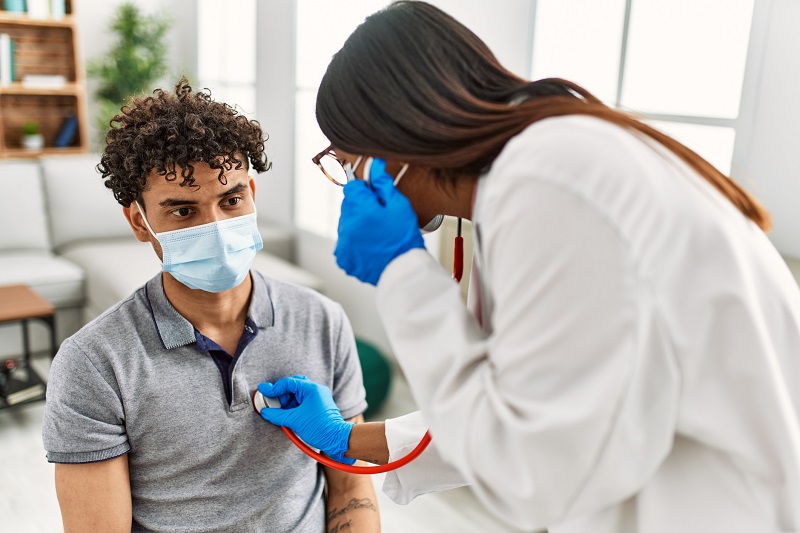Travelers with Weakened Immune Systems

Many chronic illnesses, underlying health conditions, and medicines can weaken a person's immune system, this is called being immunocompromised. If you are immunocompromised and are planning a trip, take steps to prepare for safe and healthy trip.
Before You Go
Make an appointment with your healthcare provider or a travel health specialist that takes place at least 4-6 weeks before you leave. They can help you get destination-specific vaccines, medicines, and information. Discussing your health concerns, itinerary, and planned activities with your provider allows them to give more specific advice and recommendations.
Make sure to bring a copy of your official immunization records with you when you travel.
Make sure you are up to date with all of your routine vaccines.
- If you are immunocompromised, you can safely get most vaccines recommended for travelers. However, vaccines may be less effective in people who are immunocompromised.
- Vaccines made from live viruses, such as MMR (measles, mumps, and rubella) and varicella may not be safe for people who are immunocompromised. Talk to your health care provider about your options for protecting yourself against these diseases.
- Yellow fever vaccine is a vaccine made from a live virus. People whose immune systems are very weak, such as people with low T-cell counts due to HIV infection or people receiving cancer chemotherapy, should not receive yellow fever vaccine. If there is a risk of yellow fever at your destination, CDC recommends delaying your trip until your immune system is healthy enough for you to receive the vaccine. Some countries may require the vaccine, even if there is no risk of yellow fever. If that is the case, ask your health care provider about a medical waiver for the vaccine.
Take recommended medicines as directed. If your doctor prescribes medicine for you, take the medicine as directed before, during, and after travel. Counterfeit drugs are common in some countries, so only take medicine that you bring from home and make sure to pack enough for the duration of your trip, plus extra in case of travel delays. Learn more about traveling abroad with medicine.
You may need medicine that prevents malaria. All travelers should take malaria medication when it is recommended for their destination. However, depending on your condition and medications you are taking, you may need to avoid some medications that prevent malaria. All travelers should take steps to avoid bug bites.
Get travel insurance. Find out if your health insurance covers medical care abroad. Travelers are usually responsible for paying hospital and other medical expenses out of pocket at most destinations. Make sure you have a plan to get care overseas, in case you need it. Consider buying additional insurance that covers health care and emergency evacuation, especially if you will be traveling to remote areas.
Prepare a travel health kit with items you may need, especially those items that may be difficult to find at your destination. Include your prescriptions and over-the-counter medicines in your travel health kit and take enough to last your entire trip, plus extra in case of travel delays. Depending on your destination you may also want to pack a mask, insect repellent, sunscreen (SPF 15 or higher), aloe, alcohol-based hand sanitizer, water disinfection tablets, and your health insurance card.
During Travel
Wash your hands. Regular handwashing is one of the best ways to remove germs, avoid getting sick, and prevent the spread of germs to others. Wash your hands with soap and water. If soap and water are not available, use hand sanitizer containing at least 60% alcohol.
Choose safe food and drink. Contaminated food or drinks can cause travelers’ diarrhea and other diseases and disrupt your travel. Travelers to low or middle income destinations are especially at risk. Generally, foods served hot are usually safe to eat as well as dry and packaged foods. Bottled, canned, and hot drinks are usually safe to drink. Learn more about how to choose safer food and drinks to prevent getting sick.
Protect yourself from the sun. Apply sunscreen with SPF 15 or higher when traveling. Protecting yourself from the sun isn’t just for tropical beaches—you can get a sunburn even if it’s cloudy or cold. You are at the highest risk for UV exposure when you are traveling during summer months, near the equator, at high altitudes, or between 10 am to 4 pm.
After Travel
If you traveled and feel sick, particularly if you have a fever, talk to a healthcare provider and tell them about any areas you recently traveled to.
If you need medical care abroad, see Getting Health Care During Travel.
More Information
CDC Yellow Book: Immunocompromised Travelers